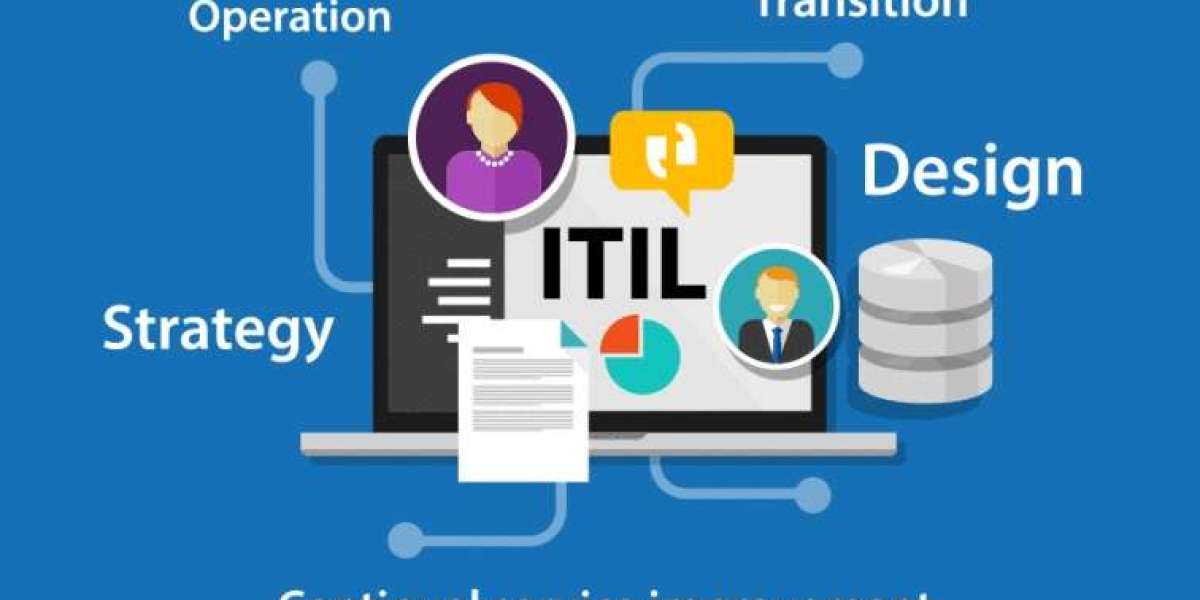IT Infrastructure Library (ITIL) certification has become increasingly important as businesses rely on technological innovations. ITIL certification offers many advantages to those striving to succeed in technology and information; this article delves deeper into its meaning, benefits, and methods of earning it.
Understanding ITIL:
ITIL stands for Information Technology Infrastructure Library. ITIL is a framework created through the UK Office of Government Commerce that guides IT service administration (ITSM). Since its release into use globally, ITIL certification has become the standard method for overseeing IT Service Management.
Origins of ITIL:
ITIL originated during the mid-80s when UK government authorities realized a standard method of IT service management was necessary. Since then, ITIL has continuously evolved, with ITIL 4 released in 2019.
ITIL Certification Explained:
Promotion of Career Opportunities:
One of the primary incentives for individuals pursuing ITIL Certification is its positive influence on job opportunities. Employers globally regard certified professionals as attractive IT leadership and management candidates.
Improve IT Services Delivery:
ITIL certification provides professionals with a solid knowledge of IT service management fundamentals. This allows organizations to deliver IT solutions more effectively and efficiently, increasing customer satisfaction.
Align with Business Goals:
ITIL practices emphasize the significance of aligning IT services with an organization's objectives and goals to ensure they contribute towards overall company success. By doing this, IT investments become part of overall corporate success rather than separate assets being put to waste.
ITIL Certification Levels:
Foundation Level:
Foundation-level certification of ITIL provides an entry point into this framework and an introductory understanding of its key concepts and terminology.
Intermediate Level:
The Intermediate level includes various modules focused on specific ITIL techniques. Candidates are free to select modules based on their professional goals.
Expert Level:
To be recognized as an Expert, Candidates must accumulate credits in both intermediate and expert modules before passing the Managing Professional Transition test.
Master Level:
The Master level certification represents the pinnacle of ITIL certification. Candidates are expected to demonstrate how ITIL concepts apply in real-world scenarios.
How Can I Achieve ITIL Certification?
Before embarking on ITIL certification, it's essential to determine what path best aligns with your career objectives. Whether it be service management, transformation, or IT strategy, an ITIL course will always be explicitly designed to fit those requirements.
Accredited Training Programs:
To successfully prepare for ITIL certification, enroll in a certified training program. These programs offer you both in-depth knowledge as well as exam preparation tools.
Successfully pass the Certification Exam:
After you have completed your training, it will be time for a certification test. Be ready to demonstrate your understanding of ITIL concepts and procedures!
Maintain Your Certifications:
ITIL certifications should be treated as something other than something to achieve once and then forget. To remain relevant, certified professionals should engage in ongoing learning and development to keep their expertise relevant.
Advantages of ITIL Certification:
Improved Skills for Problem Solving:
ITIL certification strengthens your ability to solve IT-related issues efficiently. With its service management approach, this certification equips you with tools for pinpointing and solving IT problems faster.
- Implementing ITIL techniques allows organizations to optimize IT processes while decreasing downtime and expenses.
- ITIL certification is widely acknowledged and simplifies obtaining jobs locally or globally.
Conclusion:
At a time when technology has become an integral component of running businesses, ITIL certification has become an invaluable asset for IT professionals. Not only can certified employees open doors to employment opportunities, but companies also benefit from top-quality IT solutions implemented through these trained employees. Anyone seeking to advance their career should consider becoming certified with the International Telecommunications Information Library (ITIL) for certification and might find ITIL worth exploring.
FAQs:
Does ITIL certification matter for most IT professionals?
ITIL certification can benefit IT professionals involved with Service Management, Digital Transformation, and IT strategy.
How long will it take to become ITIL-certified?
The duration of ITIL certification depends upon one's degree and level of experience; typically, several months should be allotted for preparation.
Are ITIL certifications internationally accepted?
ITIL certifications are recognized and valued globally, and certified professionals are sought out by companies worldwide.
Can I obtain ITIL certification online?
Various accredited online training programs assist with preparation for ITIL certification tests.
Does ITIL certification make sense for those just entering IT?
Yes, the ITIL Foundation level provides an ideal introduction to ITIL concepts and practices for those starting in this discipline.









